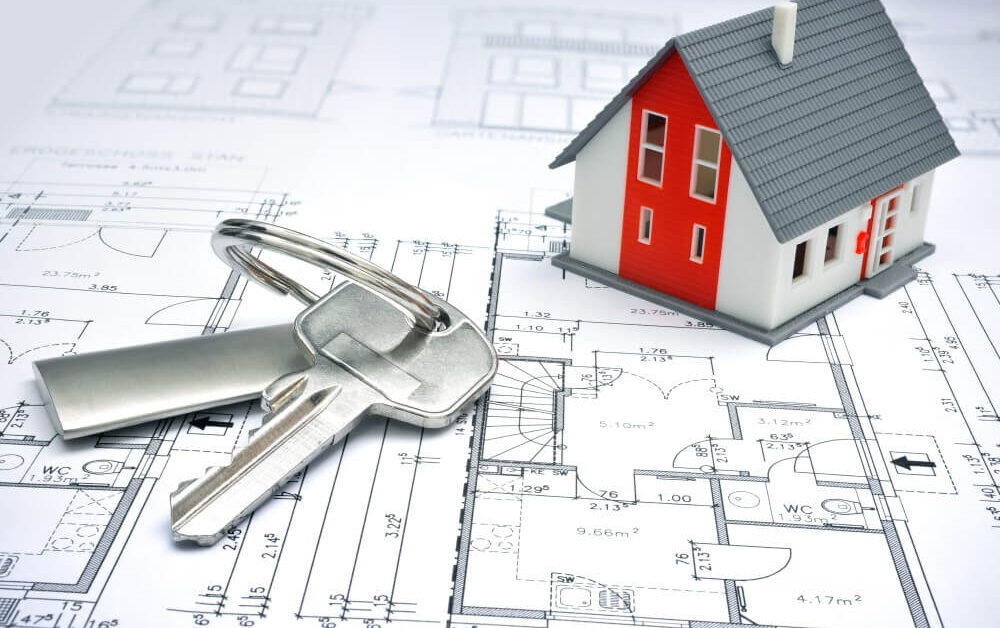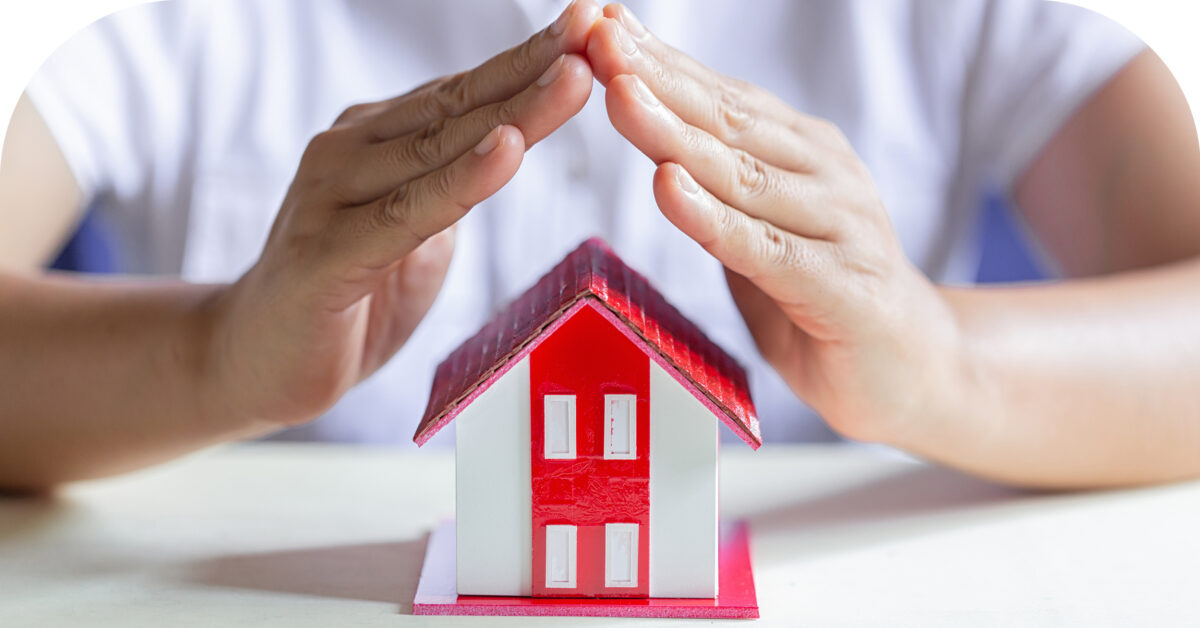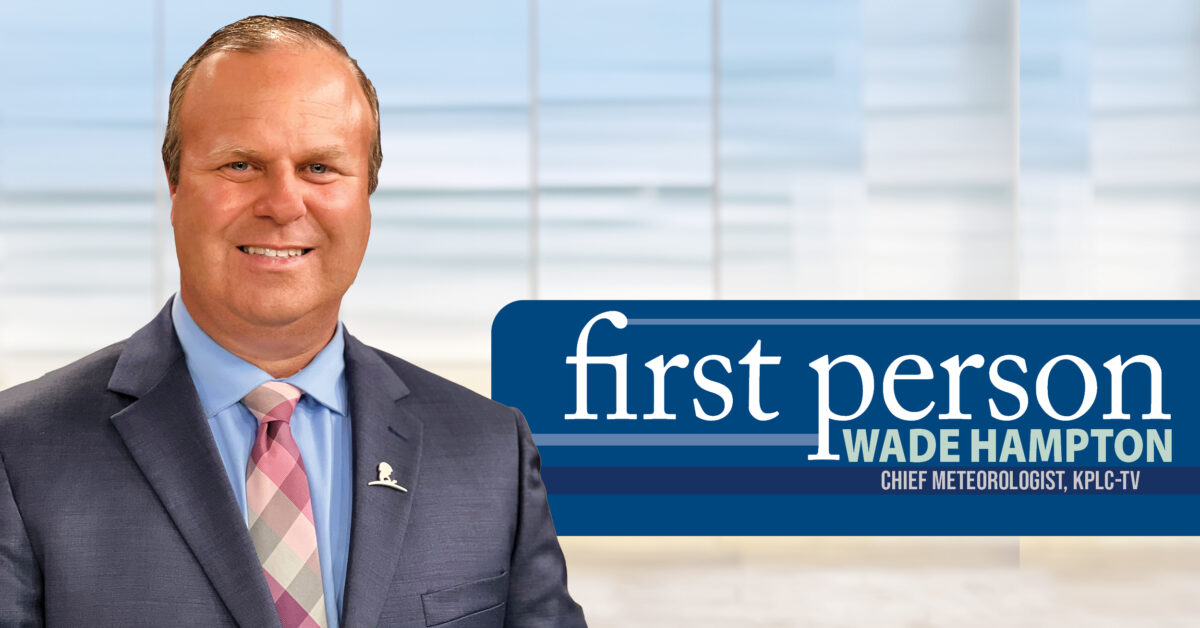
2022 Hurricane Season Preparation is Essential
June 2022
Macarons Old World Favorite is Here to Stay
June 2022Real Estate Guide
The current status of the real estate market is difficult to define, and its outlook can depend on who you are talking with. With low inventory and high prices, it’s a perfect time to be in the housing market – if you are a home seller.
Add in high interest rates to the mix, and it’s quite a challenge for today’s home buyers! With the assistance and advice of professionals – namely real estate agents and mortgage lenders – it’s doable. But you’ll need patience, flexibility, and possibly the ability to compromise.
In this special Real Estate Guide, you’ll find stories on mortgage lending and loan interest rates, the pros and cons of renting vs. buying a home, considerations on buying a second home, and information on investment properties.
High Interest Rates Make Home Buying a Challenge
by Kerry Andersen
The post hurricane housing market in Southwest Louisiana may be facing some unique and even unprecedented challenges, but no city is exempt from the topsy turvy reality of today’s fluctuating interest rates. After a year of relatively stable (and low) rates, the cost of buying a home is going up – and fast. Over the past 52 weeks, a 30-year fixed mortgage rate averaged 3.6 percent, but those days are behind us. In May, that number climbed to an astonishing 5.7 percent (5.4 percent average) and experts now believe it will rise even higher. The last time rates reached anywhere near this level was 2009 when the economy was grappling with a global financial crisis.
Lisa M. Johnson, SVP Director of Mortgage Lending at JD Bank in Lake Charles, says inflation is the driving force behind the higher rates. “The government is raising rates to drive down inflation. This will be our reality for some time, at least until the next presidential election.”
So how does an unknown and unpredictable lending market impact the home buying process? Johnson adds, “It’s more important than ever for homebuyers to turn to trusted professionals to help them through the lending process.
It’s not easy, but we are focused on counseling our clients during this unprecedented time and providing the best customer service available to those who depend on our knowledge of the volatile market with tight inventory and rising rates.”
Buyers are scrambling to lock in a home loan before rates rise so high that their purchasing power takes a hit and they’re not able to afford mortgage payments. At the same time, national home prices hit an all-time high in March – up 15-percent from last year – and capping off a decade of increases for the longest running price hike streak ever. In Southwest Louisiana where available housing inventory is already low because of hurricane damaged properties, rising rates will tighten the squeeze on the demand for affordable entry level homes even more.
“Eventually high mortgage rates will slow down home prices, but it’s definitely a seller’s market right now,” Johnson says. “Even so, we’re seeing more buyers trying to negotiate sale price on a home or bargain for paid concessions, so they aren’t priced out of the available inventory.”
Across the country, homes are still selling for above asking price. However, economists predict that by the end of the summer there will be less competition for active listings and more available inventory. That doesn’t mean prices will dip because demand for housing is still strong, but it does mean prospective buyers won’t need to hurry and lock down a rate, easing the stress somewhat for those looking for their dream home.
Is Real Estate Investing Factors toConsider
by Stefanie Powers
In these precarious times, investors are looking for the best bang for their buck. There are various ways to invest money; real estate is one of them. “Investing in real estate can be highly profitable, especially if you are willing to hold onto the property for an extended period of time and reap the benefits of the property’s appreciation value over a long stretch,” says Erin Allen, sales manager at Flavin Realty.
But like any investment, there are pitfalls, and nothing is ever a sure thing. Let’s look at the pros and cons of real estate investments.
On the plus side, you can occasionally obtain real estate at a below-market price when the homeowner must sell quickly, and you have the necessary cash to take advantage of the situation. Foreclosures and auctions are another way to find deals. Next, real estate can generate consistent cash flow. If you purchase a rental property that already has good tenants, you will receive monthly rent payments, and even additional payments associated with them, such as for storage and parking. And real estate tends to appreciate. Also, if you’re handy, renovating a fixer-upper may generate an increase in property value.
House-flipping is popular, but always remember the 70% rule: Don’t spend more than 70% of the home’s after-repair value minus the costs of renovating the property. “Flipping a home can be a great option for an investor looking for a quick return. However, buyers are more educated, so it is important to know your market,” says Karlie Leonards, Flavin Realtor®. “A Realtor® in SWLA can guide and educate clients with these potential flip properties and help them get the most bang for their buck.”
On the downside, you may lose money at some point: a rental property may become vacant, or it will not be possible to raise the rent. Tenants may stop paying rent, and you’ll have to go through the eviction process. A hurricane hits—and we all know what happens after that.
Unexpected maintenance issues can and will arise, such as a leaky roof, etc. Repair/replacement costs may be huge and could wipe out your cash reserves. And remember, ongoing income from real estate, as well as gains from the sale of a property, are all subject to federal and state income taxes – which can be substantial.
“Real estate maintains its value over time,” says Jimmy Cormier, Realtor® at Flavin Realty. “It’s not a typical short-term gain . . . and there is only a limited amount of real estate.”
It’s not always easy to sell off real estate quickly, which can be a problem if you have an immediate need for a significant amount of cash. An investor could take advantage of you and offer quick cash at a steep discount to the market price of the property, which will obviously result in a significant loss on the sale.
These disadvantages can be mitigated by hanging on to your properties for several years, maintaining a cash reserve to keep yourself solvent during any negative cash flow situations, and rolling your gains from any property sales over into new property investments to avoid taxes.
“It is always wise to reach out to a real estate professional first,” advises broker Tommy Eastman of Flavin Realty. “A Realtor® will be able to answer any questions you may have, move your property quickly, and may already have an investor in mind. Yes, people can sell without a Realtor® but why risk the unforeseen when it comes to your biggest investment?”
Is Buying a Second Home Right for You?
According to the National Association of Realtors, one in eight home buyers is shopping for a second home1—a majority with rental income in mind. In fact, more than two-thirds of those who own a second home plan to rent it out for at least part of the year, up from 20% in 2000.
However you utilize a second home, it’s a substantial investment—one that’s subject to different rules than your primary residence. “Whether or not you’re using it for rental income, a second home comes with its own set of financial considerations,” says Hayden Adams, CPA and director of tax and financial planning at the Schwab Center for Financial Research.
Consider these factors when buying and/or renting a second home.
Buying
Once you’ve found the right home for your needs, it’s time to figure out how to pay for it. Paying in cash is one option, depending on the interest-rate environment at the time of sale. If instead you decide to borrow to fund your second home or investment property, there are several financing options open to you, including:
A traditional mortgage: The most popular types include fixed-rate loans—typically for 15 or 30 years (generally speaking, the shorter the loan, the lower the interest rate)—and adjustable-rate mortgages (ARMs), whose interest rates reset after a fixed period of time and adjust in response to prevailing market rates. Jumbo loans—or those that exceed $484,350 in most parts of the United States—may require heftier down payments and have higher interest rates, closing costs, and fees.
A home equity line of credit (HELOC): A HELOC allows you to borrow against the equity in your existing residence—and the interest may be deductible if the funds are used to purchase, build, or substantially renovate a primary or secondary residence, up to certain limits.
A cash-out refinance: This refi approach replaces your existing mortgage with one that carries a larger balance. The difference between the two loans is distributed as cash, which can be especially useful if you have house-related expenses over and above the new property’s purchase price.
Securities-based lending: These nonpurpose lines of credits allow you to borrow against the value of your nonretirement assets while helping to keep your investment strategy on track. However you choose to finance your purchase, do your homework to understand the considerations and risks involved in obtaining a second home. Chief among them:
Additional debt: Taking on new debt could impact your cash flow and savings plan.
Bigger down payment: Lenders may require a larger down payment on a second home, in which case you’ll need to consider how to come up with the money without putting your other investments at risk.
Finally, be realistic about expenses. Beyond the purchase price, there are an array of ongoing costs, including insurance, repairs, utilities, and possibly homeowners’ association fees.
Renting
You need to decide up front whether you’ll rent out your second home, be it occasionally or on an ongoing basis. A rental property can provide not only income but also potential tax benefits. For example, you may be able to deduct certain expenses, such as depreciation, from your annual rental income.
Keep in mind that you’ll likely face a host of tax obligations as well. Apart from property taxes, any rental income could potentially push you into a higher tax bracket. Also, if you use a second home as both a rental property and for extended personal use, you may not be eligible for all the deductions a rental property alone would provide. A tax advisor can help you maximize the available deductions while helping you fulfill your tax obligations.
Another question to tackle in advance: How will you interact with renters? Some owners take a hands-on approach to everything from collecting rent to making repairs, while others hire handymen and even full-service property managers who can find suitable renters, help refurbish the property between tenants, and do everything in between. Such white-glove service comes at a cost, but it can be especially helpful with a property in a distant locale.
Also be sure to check with a real estate agent and/or your homeowners’ association regarding local rental laws. These can vary by municipality and even by neighborhood and are evolving rapidly in response to the rise of vacation rentals through companies such as Airbnb. In New York City, for example, you cannot rent out an entire apartment or home to visitors for fewer than 30 days, even if you own or live in the building.
Owners should also strongly consider setting aside emergency funds to avoid selling securities in a down market to pay for any unexpected expenses.
Finally, Adams urges those planning to rent out a second home to treat it as a separate business entity. “If your rental isn’t structured properly, any renter who brings a lawsuit could potentially take your car, house, or hard-earned savings,” he says. For example, registering a business as a limited liability company (LLC) can help protect your assets in the event you’re sued—as can liability insurance.
A Team Effort
Buying a second home involves a lot of work, not only in advance of buying but throughout the rental process and eventual sale. Finding a reliable team of professionals—an accountant, an attorney, a real estate agent, and possibly a property manager—can help. “More so even than your primary residence, successful second-home ownership is a team effort,” says Adams.
Renting vs. Owning: Pros and Cons to Consider Before You Sign a Lease or a Mortgage
At one time, it was a given that everyone wants to become a homeowner eventually. But now many people are reconsidering whether ownership is all it’s cracked up to be. As more people value having the mobility to pursue jobs and lives in other cities, it’s less appealing to be locked into a long-term mortgage, and many people value the freedom of renting. This poses a major question for twenty- and thirtysomethings: Should I buy or rent a home?
“Choosing whether to rent or buy is one of the most important financial decisions you’ll ever make,” says Eric Tyson, MBA, financial expert and best-selling author of Personal Finance in Your 20s & 30s For Dummies.
“Though owning a home and investing in real estate may pay off well over the long term, renting also has its advantages. To make the best decision, you need to understand your current personal and financial situation and think carefully about what matters to you now and what you think will matter to you in the future.”
Tyson suggests first asking questions like: Would I rather pay more and live in a vibrant city, or enjoy a quieter life in a less populated area? Am I sure I want to stay in my current neighborhood, city, or state? Am I planning to start a family—and where do I see myself living when I start one? Do I want to buy a starter home now, or rent for a few years and then buy a larger house later on? Would I rather own a great home now, and have less money overall for travel and leisure?
Then carefully weigh the pros and cons of renting and owning before you choose what is right for you.
Renting Pros
You aren’t responsible for fixing up the property. When you rent, you don’t have to worry about the headache of maintaining your home. That’s your landlord’s job. You have more financial and psychological flexibility. Especially in your younger years, you may not stay with your current employer or chosen career. Should you change direction in the future, you may not want the financial overhead that comes with a mortgage. If you do decide to move, you can generally do so more easily as a renter than as a homeowner.
You can have all your money in financial assets that you can tap into more easily. Some people enter their retirement years with a substantial portion of their wealth tied up in their home, a challenge that you don’t face when renting.
It’s a great opportunity to test living in an area where you’re not certain you want to buy.
If you’re gearing up to purchase a home, renting gives you a chance to try out the area where you think you’d most like to buy.
It may help you achieve big financial goals. Some financially successful renters include people who pay relatively low rent, either because they live in small housing and/or have roommates, or they live in a rent-controlled building. Some young adults live with a family member who provides them with a good deal on rent, which can have benefits. If you can consistently save ten percent or more of your earnings, which you may be able to do through a low-cost rental, you’re probably on track to achieving your financial goals.”
Renting Cons
Your monthly rent is subject to inflation. Of course, living in a rent-controlled unit, where the annual increase allowed in your rent is capped, is the exception to this rule.
Landlords tend to want long-term tenants. Most landlords prefer tenants who are stable renters and who remain for long periods of time. If you don’t expect to stay in an apartment much more than a year or two, that’s probably better left unsaid.
You don’t own the property. After paying all that rent, the property isn’t yours at the end of the day.
Home Ownership Pros
With a fixed-rate mortgage, your monthly payment never increases. This allows you to budget with confidence. However, your property taxes, homeowners insurance, and maintenance expenses will likely increase with the cost of living.
As a homeowner, you build equity in your property. That equity can be significant by the time you retire.
Owning may cost less than renting in some areas. This is especially true if you can buy at lower prices that occur after a decline in home values, which can happen for a variety of reasons.
Mortgage interest and property tax payments for your home are generally tax-deductible. In the early years of your mortgage, nearly all of your payment goes toward interest.
It’s a good option if you’re planning to stay put. Financially speaking, buying a home begins to make more financial sense if you anticipate being in your home for three to five years or more.
There are plenty of options in the real estate market. When buying, you’re sure to find a housing option that’s right for you. In addition to single-family homes, you also have higher-density options like condos, townhomes, and cooperatives. If you don’t have the time, energy, or desire to keep up a property, shared/higher density housing may make sense for you.
Home Ownership Cons
You might overpay or pay more than you can afford. Buying a home can be financially rewarding, but owning a property is a big financial commitment that may backfire if you get in over your head or overpay.
Putting 20 percent down is steep for twentysomethings. Many people, especially people in their 20s, don’t have enough cash on hand to make the standard down payment of about 20 percent of the property’s purchase price. Yet this is the percentage needed to avoid the added cost of private mortgage insurance (PMI) required by lenders.
The associated costs with buying are also high. Buying and selling a property entails a lot of expenses, including the cost of getting a mortgage, inspection expenses, moving costs, real estate agents’ commissions, and title insurance. To cover these transaction costs plus the additional costs of ownership, a property needs to appreciate about 15 percent during the tenure of your ownership.
“Regardless of whether you rent or buy, you will devote a significant amount of money to your housing expenses over the course of a lifetime,” concludes Tyson. “This is a momentous decision, so make decisions based on what is right for you—not what was right for your parents or even what’s right for other people your own age. Take a long, honest look at your life and your financial goals. Eventually, the right solution for you and your financial situation will become clear, and you can make a decision you feel good about.”
Housing Counseling Agency Announces 2022: Homebuyer Education Classes
Calcasieu Parish’s Housing Counseling Agency, in conjunction with Project Build a Future, is hosting free Homebuyer Education Classes.
Residents who are interested in buying a home, are in the process of buying a home, and even those who already own homes, are encouraged to sign up for a Homebuyer Education Class. “Taking a homebuyer education class gives potential homebuyers a chance to get unbiased information about what you can expect from the homebuying process,” said Yolanda Smith, Calcasieu Parish Housing Counseling Agency Case Manager. “In addition, these courses are often a prerequisite to be able to participate in first-time homebuyer programs and down-payment assistance programs.” The definition of “first-time homebuyer” is anyone who has not owned a home in the past three years — even if the person owned a home previously.
The class walks participants through the entire process of buying a home. It covers all the fundamentals of homeownership, including the pros and cons of purchasing a home, the role of realtors, all about mortgages (mortgage terminology, mortgage originators, mortgage attorneys, mortgage underwriters and underwriting criteria), financial management and proper budgeting. Other topics include down payments, closing costs, and insurance.
All classes are held at the Allen P. August Multipurpose Annex, 2000 Moeling St. in Lake Charles. Participants can opt to attend two, four-hour, back-to-back classes or attend one eight-hour session.
Classes are free to all participants, regardless of income. To register, visit calcasieuparish.gov/housingcounseling, click on the “homebuyer group counseling” tab and fill out the application. Applications are also available at the Calcasieu Parish Police Jury’s Human Services Department office, 2001 Moeling St., Lake Charles. The office is open from 8 a.m.- 5 p.m., Monday-Friday.
The remainder of the 2022 class schedule is as follows:
Hosted by Project Build a Future
Monday, June 20: 5-9 p.m.
Tuesday, June 21: 5-9 p.m.,
Hosted by Calcasieu Parish Police Jury
Saturday, Aug. 20: 9 a.m.-5 p.m.
Monday, Oct. 10: 5-9 p.m.
Tuesday, Oct. 11: 5-9 p.m.
Hosted by Project Build a Future
Saturday, Nov. 19: 9 a.m.-5 p.m.,
Participants will receive a certificate when they successfully complete the class. For more information, call the Calcasieu Parish Housing Counseling Agency at 337-721-4030, ext. 5120 or email Alyssa Hebert at ahebert@calcasieuparish.gov.






